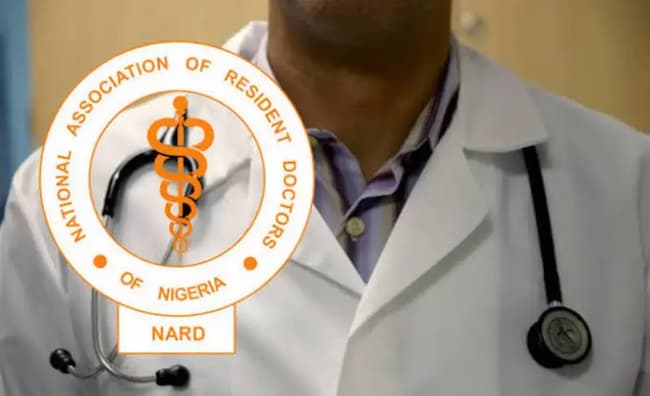The Association of Resident Doctors, Federal Capital Territory Administration (ARD-FCTA), expresses concern over the increasing abductions of healthcare workers across Nigeria, calling on the government to urgently address the escalating security issues affecting medical professionals.
During a press conference on Monday, ARD-FCTA President, Dr. Rahman Olayinka, urges both federal and state governments to prioritize the safety and security of healthcare workers. His comments come alongside the announcement of the association’s 2024 Annual Health Week and Annual General Meeting/Scientific Conference, themed “Safeguarding the Nigerian Healthcare System.”
Olayinka underscores that the growing insecurity is a primary factor driving healthcare workers to seek opportunities abroad, compounded by ongoing issues such as inadequate welfare. He also highlights the rise of the “Japa syndrome,” where Nigerian doctors leave the country in search of better work conditions and opportunities.
Olayinka explains that many doctors migrate for better pay, shorter working hours, and access to quality healthcare. He points out that in Nigeria, doctors often work under harsh conditions, sometimes facing health issues themselves due to the lack of proper healthcare facilities.
“It is disheartening that as healthcare professionals, we cannot access the very system we work in,” Olayinka remarks. He adds that unresolved issues, including poor working conditions and welfare, push many healthcare workers to leave Nigeria.
Olayinka highlights that the National Association of Resident Doctors (NARD) has continuously engaged with the government on critical welfare issues, including salaries, working conditions, and security. Unfortunately, he notes, these concerns remain largely unaddressed.
The lack of proper equipment, substandard working environments, and poor security in hospitals are key factors driving the migration of healthcare workers. These challenges, according to Olayinka, significantly affect the quality of healthcare provided to patients.
Olayinka shares details of a recent incident involving the abduction of a doctor from a hospital. Though the doctor has been released, Olayinka emphasizes the effort needed to secure their freedom and questions what would happen if security and welfare are not guaranteed in the workplace.
“If healthcare professionals cannot feel safe in their work environments, what are the expectations for their well-being?” he asks.
Olayinka stresses the importance of investing in Nigeria’s healthcare system, particularly primary healthcare, to achieve the 2030 Universal Health Coverage (UHC) target. He points out that doctors in the FCT are already contributing to primary healthcare through outreach programs in regions like Bwari, Gwarinpa, and Kuje, bringing healthcare closer to the people.
“Strengthening primary healthcare is crucial for meeting UHC targets, and we must continue to focus on these initiatives,” Olayinka emphasizes.
Olayinka acknowledges the efforts of the FCT Health Services and Environment Secretariat, led by Minister Nyesom Wike and Mandate Secretary Dr. Adedolapo Fasawe, in improving healthcare services in the FCT. He commends their work in enhancing healthcare infrastructure, particularly in primary healthcare, which plays a key role in addressing health issues before they require more intensive care.
As part of the Annual Health Week, ARD-FCTA will offer free medical services to the public, contributing to the goal of achieving universal health coverage. The event will also address critical topics such as “The Impact of the Abduction of Medical Doctors on Healthcare Services” and “What Constitutes Medical Negligence and What to Do When Caught in the Web.”











